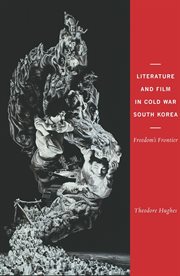Nonfiction
eBook
Details
PUBLISHED
DESCRIPTION
1 online resource
ISBN/ISSN
LANGUAGE
NOTES
Korean writers and filmmakers crossed literary and visual cultures in multilayered ways under Japanese colonial rule (1910-1945). Taking advantage of new modes and media that emerged in the early twentieth century, these artists sought subtle strategies for representing the realities of colonialism and global modernity. Theodore Hughes begins by unpacking the relations among literature, film, and art in Korea's colonial period, paying particular attention to the emerging proletarian movement, literary modernism, nativism, and wartime mobilization. He then demonstrates how these developments informed the efforts of post-1945 writers and filmmakers as they confronted the aftershocks of colonialism and the formation of separate regimes in North and South Korea. Hughes puts neglected Korean literary texts, art, and film into conversation with studies on Japanese imperialism and Korea's colonial history. At the same time, he locates post-1945 South Korean cultural production within the transnational circulation of texts, ideas, and images that took place in the first three decades of the Cold War. The incorporation of the Korean Peninsula into the global Cold War order, Hughes argues, must be understood through the politics of the visual. In Literature and Film in Cold War South Korea, he identifies ways of seeing that are central to the organization of a postcolonial culture of division, authoritarianism, and modernization
Mode of access: World Wide Web







